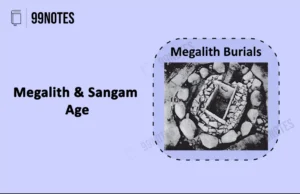28 Feb 2024 : Indian Express Editorial Analysis
Indian Express Editorial Analysis
28-February-2024
1. Our burdened children
| Topic: GS2 – Social Justice – Education This topic is relevant for both Prelims and Mains as this analysis delves into the societal impacts of educational pressures on children, parents, and teachers, providing valuable context for understanding these broader social dynamics. |
| Context: |
|
The Persistent Problem of Educational Pressure: A Historical Perspective:
- The issue of educational pressure has persisted despite past attempts at addressing it.
- In the early 1990s, a committee chaired by the late Professor Yash Pal focused on the stress experienced by school children.
- The emotional speech by novelist RK Narayan in the Rajya Sabha spurred the formation of this committee, highlighting the daily ordeal faced by children due to heavy school bags and excessive homework.
- The Yash Pal committee identified systemic factors contributing to this pressure, including a flawed conception of knowledge, poor curriculum design, and a competitive social ethos perpetuated by schools.
Evolution of the Problem: From Systemic Issues to New Challenges:
- Over the years, the educational landscape has witnessed both gains and setbacks.
- Reforms initiated in the school curriculum and teacher education have made some progress, but the COVID-19 pandemic has disrupted these advancements.
- Deletions from textbooks, a chronic shortage of teachers, and the uncharted territory of technology’s impact on education pose new challenges.
- The proliferation of coaching institutes and the rise of technology-driven testing methods have further exacerbated the pressure on students.
Pervasive Anxiety: A Shift in Educational Burden
- The burden discussed in the Yash Pal report has evolved into a broader issue of pervasive anxiety among parents, teachers, and children.
- Economic uncertainties and dwindling career opportunities have intensified the pressure to excel in traditional professions like medicine and engineering.
- The popularity of coaching institutes and technology has reshaped the testing landscape, emphasizing rote learning and multiple-choice formats over understanding and critical thinking.
The Unforeseen Impact of Technological Transformation:
- The transformative changes in children’s lives, accelerated by the COVID-19 pandemic, have highlighted the inadequacies of online education.
- Despite its shortcomings, the push for online learning in the post-pandemic era reflects a lack of teacher involvement in educational decision-making.
- The compounding of existing pressures by new forces underscores the need for a comprehensive solution to address intrinsic motivation and genuine interest in learning.
Conclusion:
- The open-book examination, while a step in the right direction, may not fully resolve the deeper issues highlighted by the Yash Pal report.
- Addressing the lack of intrinsic motivation in education requires a broader remedy that involves rethinking the educational system’s goals and priorities.
- As the educational landscape continues to evolve, it is imperative to prioritize holistic reforms that foster genuine curiosity and passion for learning among students.
| Yashpal Committee Report |
Suggestions from the Report of the Yashpal Committee
|
| PYQ: National Education Policy 2020 is in conformity with the Sustainable Development Goal-4 (2030). It intends to restructure and reorient education system in India. Critically examine the statement. (250 words/15m) (UPSC CSE (M) GS-2 2020) |
| Practice Question: Discuss the evolution of educational pressures in India, as highlighted by the findings of the Yash Pal committee and subsequent developments. Examine the systemic factors contributing to these pressures and evaluate the effectiveness of past reforms in addressing them. (250 words/15 m) |
2. Culture as development
| Topic: GS2 – International Relations This topic is relevant for both Prelims and Mains as the analysis delves into the global development strategy, emphasizing the importance of culture in inclusive and sustainable development. |
| Context: |
|
Culture’s Absence in Sustainable Development Goals (SDGs):
- Despite its profound societal influence, culture is notably absent from the Sustainable Development Goals (SDGs).
- This contrasts with its acknowledged relevance in the 2030 Agenda, where its role remains vaguely defined.
- This oversight overlooks the comprehensive contribution of culture to sustainable development.
Critical Role of Culture in Sustainable Development:
- In contemporary contexts, culture has proven critical in ensuring rights-based and inclusive sustainable development models.
- It encompasses the diversity of societies and supports the localization of SDGs.
- Culture facilitates intergenerational communication, reinforces social norms and values, and permeates various public policies, serving as both catalyst and facilitator for multiple developmental objectives.
Integral Contribution to Achieving SDGs:
- Despite the absence of a specific SDG dedicated to culture, its influence spans across all 17 SDGs.
- Culture’s significance is recognized in targets related to poverty reduction, quality education, employment, social justice, and environmental preservation.
- Its integrative nature transcends the social, economic, and environmental pillars of sustainable development.
Proposing Culture as a Standalone Goal:
- Recognizing culture as a standalone goal within the post-2030 development agenda is imperative due to its transformative impact on society.
- This standalone goal would galvanize global action, nurture creativity and intercultural dialogue, empower marginalized communities, and safeguard vulnerable heritage.
- Integrating cultural considerations into the core fabric of development unlocks its transformative potential, ensuring a more equitable, just, and sustainable world.
India’s Commitment to Holistic Sustainability:
- India’s support for culture on the global stage is rooted in its rich heritage and commitment to holistic sustainability.
- Leveraging ancient wisdom and cultural practices, India has developed innovative solutions to contemporary challenges.
- Sustainability has been ingrained in Indian society, fostering mutual co-existence, peace, and interdependence.
Innovative Solutions and Eco-Conscious Lifestyle:
- India has leveraged its cultural ethos to develop innovative solutions, adapting traditional wisdom to modern needs.
- Practices such as frugality, resource conservation, and recycling are deeply embedded in Indian lifestyle.
- Prime Minister Narendra Modi’s call for Lifestyle for Environment (LiFE) underscores India’s commitment to global sustainability, promoting eco-conscious living and responsible resource utilization.
Significance of G20’s Endorsement:
- The unanimous endorsement of culture as a standalone goal by the G20 under India’s leadership holds profound significance for the international community.
- It reaffirms the critical importance of culture in fostering inclusive, resilient, and interconnected societies.
- Embracing culture as a core component of the global development agenda is essential for a brighter, more harmonious future for all nations and peoples.
| Role of Cultural Diversity in Progress and Development |
Cultural Diversity and Economic Growth:
Cultural Knowledge:
Progress towards a Peaceful World:
Better and Just Development Policy Creation:
Development of Culture-Centric Tourism:
|
| Practice Question: Discuss the significance of the recent endorsement of culture as a standalone goal under India’s G20 presidency in the context of global development strategy. Analyze the implications of integrating cultural considerations into sustainable development frameworks and its alignment with India’s commitment to holistic sustainability. (250 words/15 m) |
For Enquiry

28 Feb 2024 : Daily Answer Writing

28 Feb 2024 : Daily Current Affairs

28 Feb 2024 : Indian Express Editorial Analysis

28 February 2024 : The Hindu Editorial Notes PDF

28 February 2024 : PIB Summary for UPSC

Megaliths: Ancient Stones & Their Mysteries (UPSC Exam Notes)

27 Feb 2024 : Daily Current Affairs Quiz

27 Feb 2024 : Daily Answer Writing

27 Feb 2024 : Daily Current Affairs

27 February 2024 : The Hindu Editorial Notes PDF
mains answer writing 28 Feb 2024 : Daily Answer Writing Mains Answer Writing
28-February-2024
Q1) The Lokpal Act aimed to establish an institution that would…
Daily Current Affairs 28 Feb 2024 : Daily Current Affairs Daily Current Affairs
28-February-2024- Top News of the Day
1. India Unveils Astronauts for Gaganyaan…
Indian Express 28 Feb 2024 : Indian Express Editorial Analysis Indian Express Editorial Analysis
28-February-2024
1. Our burdened children
Topic: GS2 – Social Justice…
Feb 2024 The Hindu 28 February 2024 : The Hindu Editorial Notes PDF The Hindu Editorial
28-February-2024
1. Stop the dithering and encourage green elections in India
Topic:…
feb 2024 PIB 28 February 2024 : PIB Summary for UPSC PIB Summary for UPSC
28 February -2024
1. Central Electricity Authority to honour the nation’s frontline…
Ancient India Megaliths: Ancient Stones & Their Mysteries (UPSC Exam Notes) Megaliths
A megalith is a large stone used alone or in conjunction with other stones to build a prehistoric…
Daily Quiz 27 Feb 2024 : Daily Current Affairs Quiz 27 Feb 2024 : Daily Quiz…
mains answer writing 27 Feb 2024 : Daily Answer Writing Mains Answer Writing
27-February-2024
Q1)”Parliamentary committees serve as the engine room of…
Daily Current Affairs 27 Feb 2024 : Daily Current Affairs Daily Current Affairs
27-February-2024- Top News of the Day
1. Maharashtra Dilutes RTE Act, Sparks Debate…
Feb 2024 The Hindu 27 February 2024 : The Hindu Editorial Notes PDF The Hindu Editorial
27-February-2024
1. Drop the ‘garland model’ to let science in India blossom
Topic:…

